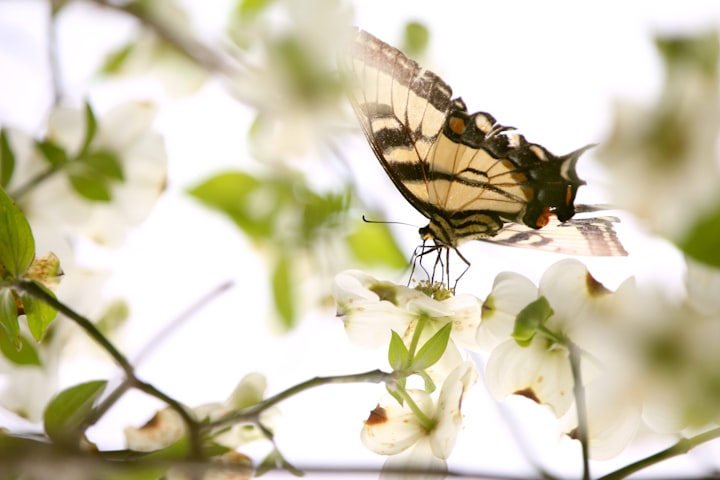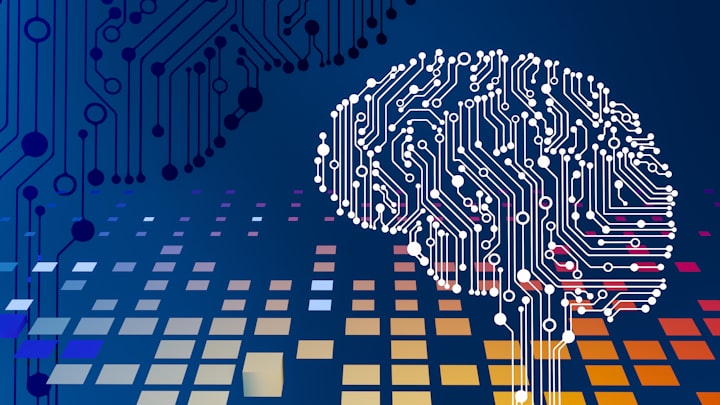Swallowtail
An Asian Activist during the Black Lives Matter Revolution

The current global climate is boiling to a point of no return. This year is no different: the U.S. president blindly leading his citizens closer to war; protesters in Hong Kong fight for liberation; wildfires in Australia remind us of our dying planet; the coronavirus pandemic deaths brings light to economic flaws and ignorant leaders; now the staggering number of black lives lost to police brutality is fueling a racial justice revolution.
Although these issues are popping up like daisies now, many of them stem from long-ignored concerns like climate change and racial inequality. The tension between black people and the police grows every hour, and the wrongful murders of George Floyd and Breonna Taylor, amongst many others, have acted as a spark that set off the bomb of revolution. People are going to the streets to riot and protest, violently and peacefully.
I’ve never been great at speaking up for myself, and now there’s a huge call to speak up for others. There are many reasons I am reluctant to assert my beliefs including anxiety and fear of conflict. In relevance to activism in the #BlackLivesMatter movement, I have an additional yet subtle set of reasons for staying quiet as a transracially adopted Asian woman.
The Model Minority
The classic stereotypical Asian is seen to work in professions perceived as highly successful or profitable, despite the hardships faced as an immigrant or descendent of immigrant parents. People tend to forget there are Asians born on American soil. Discrimination towards black people has been justified by the claim that if Asians can get into these professions and acquire decent housing in our current society, then black people have no excuse for living in impoverished communities with high rates of unemployment. This faulty comparison assumes that the success of a few Asian-Americans shows that African-Americans can also overcome discrimination, despite centuries of slavery (Chow, NPR: Code Switch, 2017). Although black people and Asians are both considered people of color (POC), each of their experiences of racial discrimination is unique. Their appearance, history, and culture differ, which greatly impact their treatment in society.
Black people endured the transatlantic slave trade, becoming unwilling immigrants to North America. In the “United” States of America, it took several centuries for emancipation to be considered and passed; the nation then waited additional two-and-half years for it to be fully enacted (Solly, Smithsonian Magazine, June 2020). Off came the chains of slavery and on came the cuffs of segregation. Jim Crow Laws enabled gentrification, segregation, and unequal enforcement of law amongst many other struggles for black people. Limited job opportunities with low-pay, redlining, and educational segregation were the very start to systematic racism in the U.S.
Asian people were considered the “yellow peril”, unfit for citizenship in the United States (De Leon via PBS News Hour, April 2020). Rumors of uncleanliness led to the passing of the Chinese Exclusion Act, the first law restricting immigration based on race. The California gold rush housed racial tension between white supremacists and Asian immigrants, leading to a foreign miner fee that evolved into the People V. Hall supreme court case, which eliminates the right for a Chinese immigrant to testify against white citizens (History.com Staff, 2018).
Because of these differences, I feel like I can’t completely speak about the struggles of black Americans. There may be overlaps and similarities, but I am not black. I don’t know what it’s like to get pulled over because my complexion is criminalized. At worst, people just think that I’m bad at driving. I’m not shot down while lounging in my apartment. I don’t have to worry about getting killed during a run because of my skin. I might fear to be sexually assaulted as a woman, but that isn’t the same thing at all. Even as a POC, it is impossible for me to fathom the experience of a black American.
Tired Voices, Tardy Listeners
Black people have been fighting and screaming for their right to live for decades while everyone turned their cheek and sat on their hands. Their throats are sore, hands weathered down, cheeks salty and dry. Sadness has grown into anger, while the rest of the world resists change.
The world is given a new set of eyes. Suddenly people see what others across the state, nation, and even the country can see. There are eyes in our hands, pockets, and now hearts. We see what we’ve done, what we haven’t done, and now some are frantic to bring change.
The spotlight, rusted over the years, has finally turned to black voices, but some are not willing to come to the stage. They’ve done their speech. They’ve shared their struggles. This isn’t new to them. I’ve heard some black activists say they’re tired of talking to people still learning about how terrible black people have it. Amanda Seales says, “I don’t want to waste any more of my breath speaking to ignorant -- willfully ignorant -- white privileged people about what’s happening every day in front of their faces and trying to make them see.”
It’s not black people’s job to inform us about what’s happening; it’s ours. We need to be looking out for them, our brothers, sisters, moms, dads, aunts, uncles, doctors, lawyers, teachers, scientists, engineers, inventors, authors. They are a part of us. Why on earth have we looked away for so long?
A Sheep in Wolf’s Clothing
Growing up with my white mom in a predominantly white community, it was rare for me to talk or bump into any person of color. I was told to not wander into certain roads or streets where the impoverished lived in concern for my safety. I was urged to avoid the Daily Grind because smokers and "people I shouldn't be near" went there. I know my mom probably didn't mean to keep me from the few people of color in my town, but those who had substance abuse issues and lived paychek to paycheck were black and brown people.
The lack of diversity in my school and neighborhood led me to believe that in some way, I was also white. I didn't feel Chinese. I don't know Mandarin. I didn't have overbearing first-generation immigrant parents. I don't have noodles and rice every night. My life didn't match up with the image of an Asian that I grew up to know. I look Asian, but my core doesn't connect with that projected identity of the "Asian-American". My outside doesn't match my inner self. I felt like a sheep in wolf's clothing. I didn't look like who I felt I was.
In dreams, I had porcelain white skin, like a K-pop star. This was before I knew what K-pop was, but I think they're getting white-washed too. A pallid complexion is associated with power, intelligence, and wealth.
With the this unnerving war brewing inside of me, I envy the black people who feel at peace with who they are. They have a community of others who know what it's like to be black in America. They understand their culture and are able to identify with it. Although it may not be the easiest race to be, they are proud of it. I've always seen black people as proud, passionate, and incredibly strong individuals. My insecurity and shaky racial identity cause me to be intimidated by them. I put black people on a pedestal, and I don't feel like I'm cool enough to talk to them.
I realize that this is all in my head, and it doesn't matter who I think I am right now. That shouldn't and won't prevent me from reaching out. People, although unique and different, all have the ability to connect and learn from each other. It's cowardous to let fear inhibit such a gift.
A Token of Gratitude
In elementary school, there was only one kid of color in each class. If you were lucky, there'd be two or three. In high shcool, I could count the latinx, black, and Asian students all on one hand. I'd joke to cope, saying that it was like seeing a bunch of flies drowning in a bowl of milk. They can't breathe.
I'd see all the black kids sit at the same table during lunch. They'd walk together in groups through the halls. Some of them had white friends, but if they did, they were the only black person in that friend group. I hadn't interacted with any black people outside of elementary school, and now they're traveling in packs. I was afraid to reach out to them, even though I knew they were just kids going through the same high school bullshit I was going through.
Their loud laughter, bold gestures and animated conversations with their own words intimidated me. It felt like if I were to reach out to them, I'd have to swim through a moat and meditate for five years. It wasn't until later did I realize that they were the ones who felt they couldn't reach out to everyone else. They had their own words and felt most comfortable around each other because very few of the other students welcomed them.
My friend, Shelby, one of my few black friends, went through some horrible discrimination and harrassment at our school. People would make whipping noises behind him in the hall or tell him to go back to the cotton gin to fill them a barrel. Some of the seniors had a confederate flag on their trucks parked at our school, and it took a few weeks for the school to do anything about it.
Shelby grew up in a few white foster homes, so he spoke more like me and had mostly white friends. He became my token black friend. He was sort of like me: a little "white" on the inside. I hate that he's sort of a stepping stone for me to talk to other black people, but at least through knowing him, I can become more confident in connecting with mor melanated people. I should be able to do that myself, but he entered my life nonetheless, and I'm eternally grateful he did.
Shelby lives with me now. He's been living with my family for almost five years now, and in those five years, I've learned more about the black community and culture than I've learned in the fifteen years I've been alive before I met him.
He may have been my token black friend, but he's more than that to me now. He's just a friend. My best friend. An irreplacable friend that I'm immeasurably grateful for.
Metamorphosis
In addition to becoming more confident in my own racial identity, I've adopted a few new changes to my life in order to connect with and advocate for black lives.
One small thing I've adopted is checking how many times I put my hands in my pocket. That's a privilege I have that black people don't have when in public. It's something small I've taken for granted over the years, and it reminds me of how unfair this all is. I don't get shot for hiding my hands.
I'm attending rallies and peaceful protests, reading and studying black literature, growing my wishlist of things to buy from black-owned businesses, and watching plenty of content informing me of the systemic racism in my nation. I'm preparing myself to initiate a conversation with my white and privileged peers to create change. In order to get things done, I need to know what things need to get done, why, and how.
This is just the beginning of my own change. As Michael Jackson said, "If you wanna make the world a better place, take a look at yourself and make that change."
I will constantly improve myself. The metamorphosis stage is everlasting until death.






Comments
There are no comments for this story
Be the first to respond and start the conversation.